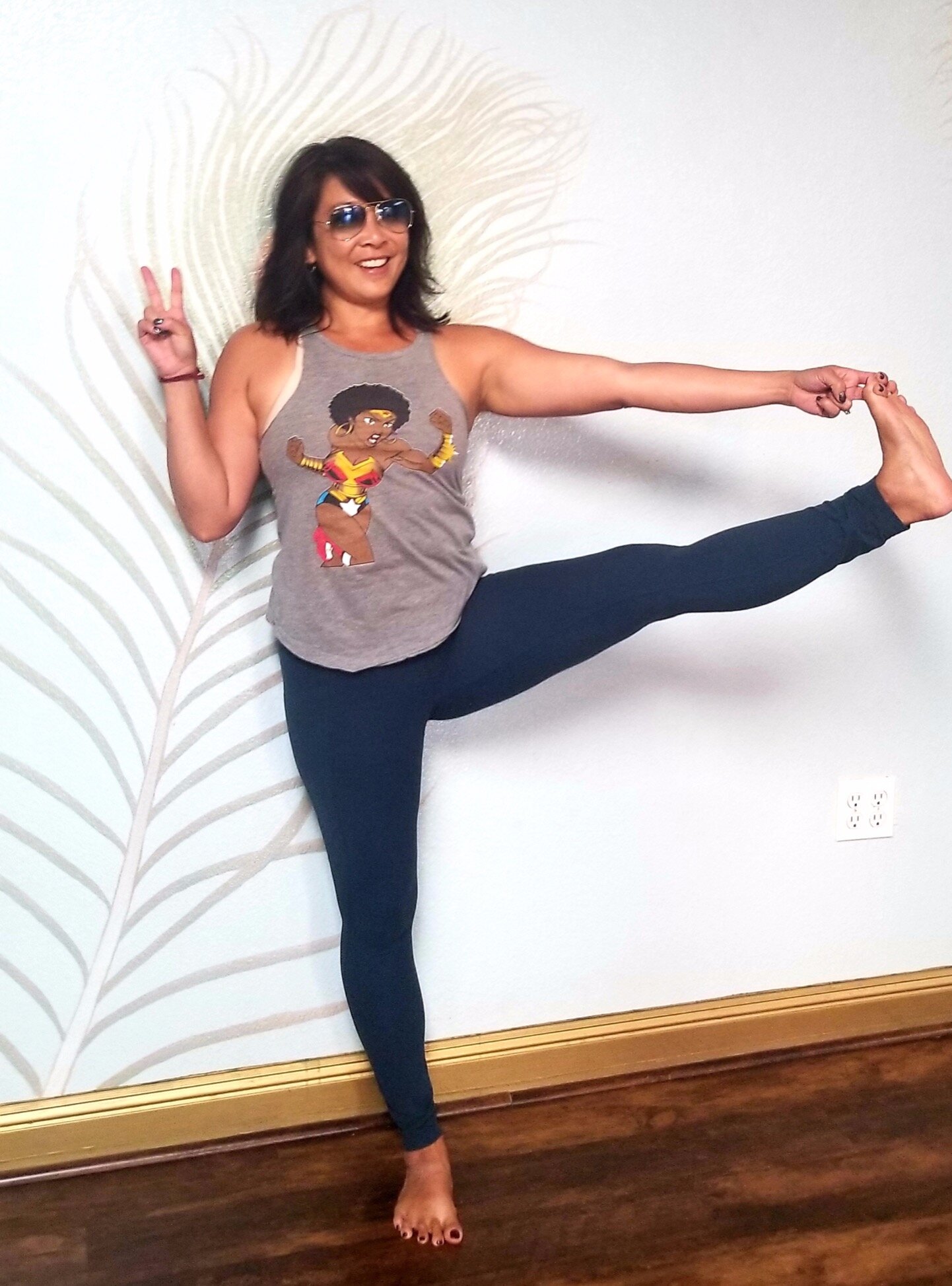What does it mean to be resilient?
And, how can you be more resilient on your way to better health?
It's an often misunderstood thing: being a yogi doesn't mean you never get mad, angry, sad, you name it. The point is not to dull the emotions (which is another problem, more on that to come), but to feel things, let them move through, and have the tools to manage the range of emotions and the ups and downs. That is resilience.
What we're working on in our yoga practice is to quiet the vibrations of the mind so that we ultimately feel, see, and do with clarity. Self-care practices - in the yogic realm and outside of it - can support us in being more consciously in control of our ability to regulate ourselves in mind, body, and spirit. That is resilience.
How to Be More Resilient - Mind, Body, Spirit
When you are a resilient person, perhaps as a result of your yoga practice or self-care toolkit, you are able to regulate - able to is the key. You have the ability to help yourself, because while we can control how we show up and respond to life, we cannot control life. We can be present, mindful, make clear choices, decide to breathe in a way that supports our systems, and be connected to ourselves. That is resilience.
Signs you have an opportunity to enhance your own resilience come in two categories, mapped to the nervous system: hyper-arousal and hypo-arousal. Out of balance, you can show up either panicked or totally withdrawn, for example, unable to pull yourself back into the center. The ability to pull ourselves back into the center is resilience. So, let's try to enhance our abilities to be resilient.
Steps to Reslience
The first step is to identify the characteristics of being out of balance, out of a resilient state.
Hyper-arousal: adrenals on overdrive, sympathetic nervous system ("flight or flight") always-on, chronically in a heightened state
Hypo-arousal: stuck non-responsive, disconnected state, parasympathetic nervous system ("rest and restore") turning off emotions, chronically in flat or shut-down state
Hyper-arousal can present as anxiety, panic, overwhelm, aggression, chaotic responses, physical pain, overeating, and perhaps addictions - way too much personal fire, if you will. Hypo-arousal can appear in the form of depression, chronic exhaustion, or emotionless autopilot state of mind - an overwhelming freeze on feelings and life, in a way. It's also possible to fluctuate between the two or have crossover between the two categories. You can also feel so overwhelmed that you then shut down. Resilience is the ability to track what is happening to you and be able to bring yourself back to center.
The second step is to understand what can help bring you back into balance, and this is where yoga and self-care can really help. I can speak from experience, having journeyed through both. In fact, I still experience both, but the key again is that I've enhanced my resilience. When you are able to regulate, the other thing that happens is that your entire body becomes healthier.
Thought precedes emotion, emotion influences the body state, and if emotions are stuck, so is bodily health. In other words, if you can gain control of the mind, you can manage your body and feel better - mind and body. Then, what would that do for your spirit? Imagine!
Some tools to explore:
Pranayama (control of the breath) - It's said in yoga if we can control the breath, we can control the mind. Ask yourself if you are in tune with how deeply you're breathing, when you're breathing. In addition, certain yoga breaths can cleanse, focus, and help digestion. One balancing breath I like to practice can be integrated into your day, such as when you brush your teeth. Another helps you wake up, like a yogi cup of coffee.
Meditation (control of the mind) - Science is now proving what the yogis always knew, which is that mental control has a myriad of health benefits, such as stress relief and better memory and focus. Here's my beginner's guide.
Mantra (chanting or phrase repetition) - When you repeat something enough, you will believe it or manifest it. Mantra can be a type of meditation, or they can serve as personal affirmations to shift your energies. It changed my life! Here's my guide to chanting your way to better health!
Asana (postures to address energetic and physical blockage) - Most of us see yoga as "poses" that can help us feel better or make us stronger, and both of those are true. More study can lead us to understand that a forward fold can calm the mind, a downward dog can pump the brain with blood (it is an inversion), or a lengthy savanna can help support the parasympathetic nervous system (commit to doing these regularly, and for a long time, and you will notice a decrease in stress).
Diet (food choices) - Dieting in the west is often seen as a weight loss challenge, but in yoga lifestyle, diet helps keep the digestive system strong to sustain "ojas," or "vital energy" that rules immunity, strength, and happiness in the Ayurveda system. A supportive diet that is aligned with your dosha (natural constitution) can reduce "ama," toxins that drain your digestive fire. 90% of your body's serotonin (the feel-good hormone) is in your gut, which means that if your gut is healthy, you will feel better in your whole life.
Essential Oils (quintessential plant medicine) - Leveraging natural remedies that existed long before big pharma, high quality essential oils dispense support and healing by harnessing the power of seeds, roots, leaves, and resins. Here's my take on that through daily mood management and/or sustainable self care. Essential oils can be combined to create synergies or used solo, diffused into the air to hack a mood swing - bergamot cuts stress right away - or applied to a location on the body for physical healing through the limbic system (neural pathways that control emotion, motivation, memory and more) - I recommend a good rose oil on the heart for emotional healing.
I know! It's a lot, and it's awesome to know we can do something and take control of our own health by increasing our resilience! It takes some time. It takes commitment and discipline. I promise you if I can do it, you can too! Let's not skip this sustainable method in favor of pills. Let's work and stick to it! I'm here to answer questions or do a 1:1 consult to get you on the right track! Namaste!
If you want to understand what inspires me to share, I wrote about my journey back to health and happiness the intro to my book, Happy-Go-Yoga. The intro itself was published on Health.com and you can read it here, or purchase my book with my personal link on Amazon.com here.
Sources: Happy-Go-Yoga (Hachette, Grand Central Life & Style); Kristin Miscall, LCSW; Dartmouth.edu; Elaine Hsiao, Research Assistant Professor, Caltech.edu



